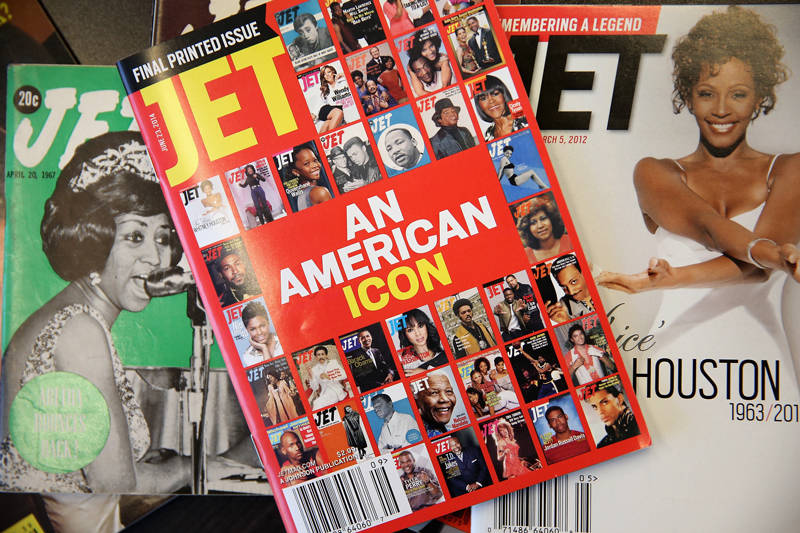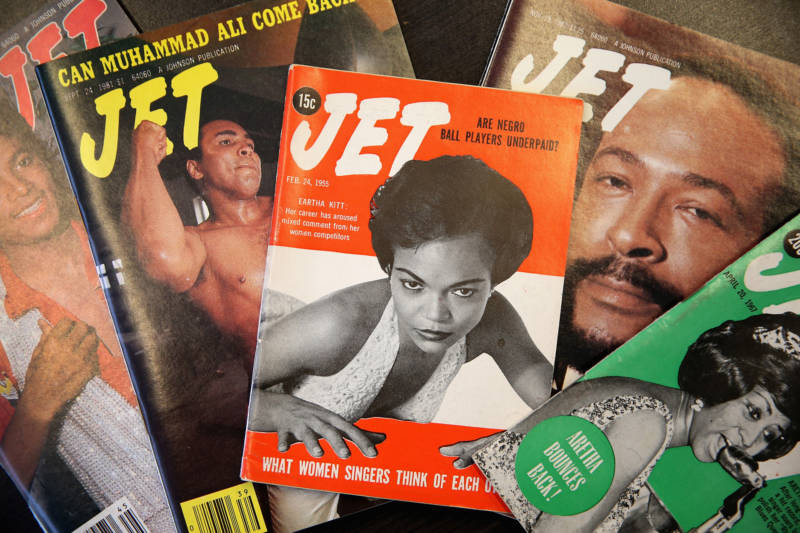The first time Darren Walker was featured in The New York Times two decades ago, his grandmother asked when he would appear in “The Jet.”
“Until you made it in The Jet, you haven’t made it in the African American community,” Walker said. “That story is a metaphor for the reverence and credibility that Ebony and Jet magazines held for decades.”
On Thursday, Walker as president of the Ford Foundation and Elizabeth Alexander, president of the Andrew W. Mellon Foundation, shepherded a $30 million deal to buy the photo archive of America’s most iconic black magazines. A judge in Chicago approved the sale as part of an auction to pay off secured creditors of the Johnson Publishing Company, which sold the magazines three years ago.
Now the owners promise to donate the more than 4 million prints and negatives from Ebony and Jet magazines chronicling African American history to the Smithsonian National Museum of African American History and Culture and the Getty Research Institute.
The Smithsonian is expected to be the public steward of what is considered one of the most significant collections of photographs cataloging African American life. Getty will be tasked with digitally preserving the trove, some of which remains a mystery.

“There are some treasures of images that could be used in all kinds of ways if not governed by principles of historical preservation,” Alexander said, citing concerns about misrepresentation and even erasure of black history.
The deal was an unusually swift and surprisingly successful endeavor for the nonprofit sector out competing with corporate bidders. The purchase was coordinated between multiple major donors in a matter of days, a decisive move championed by two of philanthropy’s most prominent black leaders, themselves a rarity in the near exclusively white world of big-money philanthropy.
Both Walker and Alexander said the sale was important to them personally as African Americans. They said their roles in preserving the archive through philanthropy shows progress for the field.
“Even if the founders of these foundations might not have imagined these funds being put to this use, what’s important and exciting is these African American images are central to understanding America and I think that’s what the diversified support for this purchase underscores as well,” Alexander said.
Walker and Alexander also recruited the John D. and Catherine T. McArthur Foundation and The J. Paul Getty Trust to join them as funders in the sale. Walker got the Ford Foundation to contribute the largest sum — $12.5 million — and put up the deposit money to extend an already pending auction so that the foundations could compete. They won Wednesday.
Alexander said she’s not concerned about a possible conflict of interest given that the Getty group is a purchaser and will be a recipient of the achieve because few organizations have the expertise and capacity to take on such an expansive collection.
“There is no greater repository of the history of the modern African American experience than this archive,” said James Cuno, president of The J. Paul Getty Trust. “Saving it and making it available to the public is a great honor and a grave responsibility.”
Chicago-based Johnson Publishing filed for Chapter 7 bankruptcy protection in April. The former magazine publisher has tried since 2015 to sell its photo archive. It was once appraised at $46 million.
The auction recovers money owed secured creditors filmmaker George Lucas and Mellody Hobson, whose Capital V Holdings loaned $12 million to Johnson Publishing. Hobson, who couldn’t be reached for comment Thursday, was once rumored to be interested in buying the archive.
The sale was bittersweet for some who mourned the fact that the prints won’t fully be in the hands of an African American-owned entity. The buyers insist they saved it from potential commercial harm.
“No matter what happens with the business, my goodness, imagine what it means to have your legacy rescued,” Alexander said of Johnson Publishing.
The collection of 4 million images chronicles the civil rights movement and the lives of prominent figures such as Billie Holiday, Muhammad Ali and Coretta Scott King at her husband’s funeral. It was Jet in 1955 that published a photograph of the open coffin of Emmett Till. The photo showed the effects of the fatal beating the 14-year-old Chicago boy suffered at the hands of white men in Mississippi for allegedly whistling at a white woman.
“The story of (and) the narrative of African Americans won’t be for sale. You won’t have to pay to have access to that history,” Walker said. “That history belongs to the public.”


